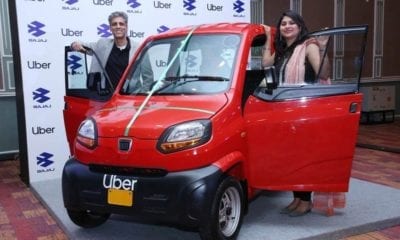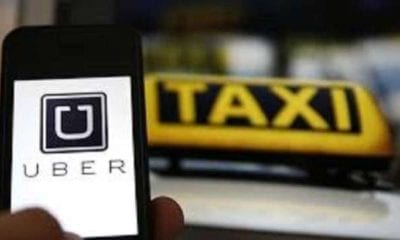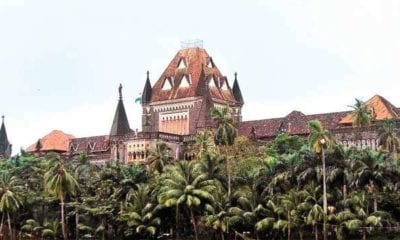Cars
Future is here, for Uber

Uber believes it has a solution to the ever present problem of traffic. This solution goes beyond hiring someone to do the driving for you. Instead of driving your car or riding in someone else’s, you can just take out your phone and select UberAIR in the app. You can then head to the roof of a nearby tall building and hop into a gleaming white helicopter-drone hybrid that can lift you up and you can reach your destination flying at a speed of over 200mph.
Uber has presented this idea. And this week, it has announced that, by 2020, it wants to launch this service Los Angeles as a test. And, a few years later, a real commercial service.
Uber has even released a video showcasing such a journey. After finding an elevator or in other cases, stairs, passengers will reach the roof. It is presumed that they are verified, because there’s no security visible in the video. A helper in an orange vest will then take a group of no more than four passengers out to the waiting craft. Then the pilot will take off and a small LED display will show to the passengers, the estimated arrival time.
If this is to be made possible, then Uber will need to solve all the other problems that come with launching this sort of transportation service. That means cooperating with air traffic control, finding the appropriate flying routes, addressing the noise concerns, and developing or acquiring high-tech flying cars. But Uber certainly has the guts and resources to do all this.
Uber has insisted that it only wants to help build an environment that makes such a service possible. In the same way as it doesn’t build cars, it doesn’t plan to have to design its own aircraft or hire its own pilots or air traffic controllers. It only wants to be a catalyst or a helper, to help others who can solve the problems. The company only wants to motivate them in this milestone in transportation.
Acquiring a fleet of aircrafts and merging them into an existing traffic of a city is a very complicated job. This service will not look like Uber’s ground service. The first flights will likely be on agreed-upon routes, just like roads in the sky. Those routes would have to run above freeway corridors also, to help with noise concerns.
The vehicles aren’t yet procured, but Uber is working with aerospace partners like Pipistrel, Embraer, Aurora Flight Sciences, Bell Helicopter and Mooney Aviation. The technical challenges of creating a drone which is capable of carrying passengers are notorious.
There’s still a very long way to go between such demonstration flights, which can at maximum efficiency move not more than 20 people an hour from one part of a city to another, and a real commercial service, which will literally have to transport thousands to be cost effective.
Uber at present has proposed point-to-point transport from airpads. This will be a problem in the future when it has to deal with aerial traffic from aircrafts waiting to land.
This all may sound like the talk of the future. But the path of advanced transport passes through the struggle of a well-developed local aerial transport available to the citizens.
-Archit



































